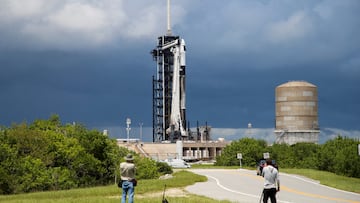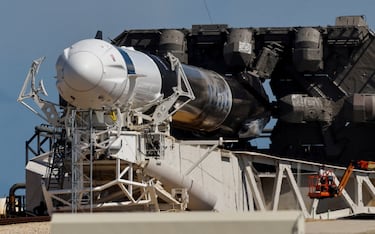Polaris Dawn offers private space passes to its customers. When does it cost and what does it consist of?
At the end of August, the first private spaceflight with Polaris Dawn took place.


Polaris Dawn launched on August 27th, marking the riskiest private spaceflight in history. The trip, known as Inspiration4, included the first ever commercial spacewalk in human history as well as the first EVA (extravehicular activity) from a Crew Dragon capsule.
The crew, consisting of Mission Commander Jared Isaacman, Pilot Scot Poteet, Mission Specialist Sarah Gillis, and Anna Menon, a mission specialist and medical officer, flew aboard Falcon 9 in a Crew Dragon capsule.
Isaacman is a billionaire who paid for the privilege to fly aboard: he joined the flight alongside his close friend Scott ‘Kidd’ Poteet, who is a retired air force pilot. Anna Menon and Sarah Gillis are two SpaceX engineers, in case a screw and washer fell out of the wall.
A first look at more photos captured by the Polaris Dawn crew during their five day mission orbiting Earth → https://t.co/EtGkYdRjll pic.twitter.com/3jxamNOG7n
— Polaris (@PolarisProgram) September 28, 2024
After various rocket failures, technical problems, delayed preflight checks and a tight calendar, the 2022 flight was pushed back a couple of years, but the 5-day trip finally concluded in mid-September of 2024, with everyone returning to Earth safe and sound.
How much did the Polaris Dawn mission cost?
The official numbers for the trip have not been revleaed, with plenty of people speculating wildly from the millions into tens of billions. The Washington Post wrote at the time that “Isaacman and SpaceX did not disclose how much he was paying for the flights, though the figure could easily be several hundred million dollars. He also wouldn’t say exactly how much the Inspiration4 mission cost, except that the price was less than $200 million.”

Related stories
“We know space is expensive,” Isaacman said when asked about the costs of the Polaris program, admitting that it was “fully funded. Costs will come down just as they have for any other groundbreaking technology,” he said. “This is a contribution from both SpaceX and myself towards the important goals we want to achieve with the Polaris program.”
The official website of the trip explains that after launching from the Kennedy Space center, the Dragon spacecraft “traveled across a low-Earth orbit on a three-day journey that eclipsed more than 90% of Earth’s population”. It adds that as well as conducting experiments “designed to expand our knowledge of the universe”, the trip raised “over $240 million for St. Jude Children’s Research Hospital”.


Complete your personal details to comment